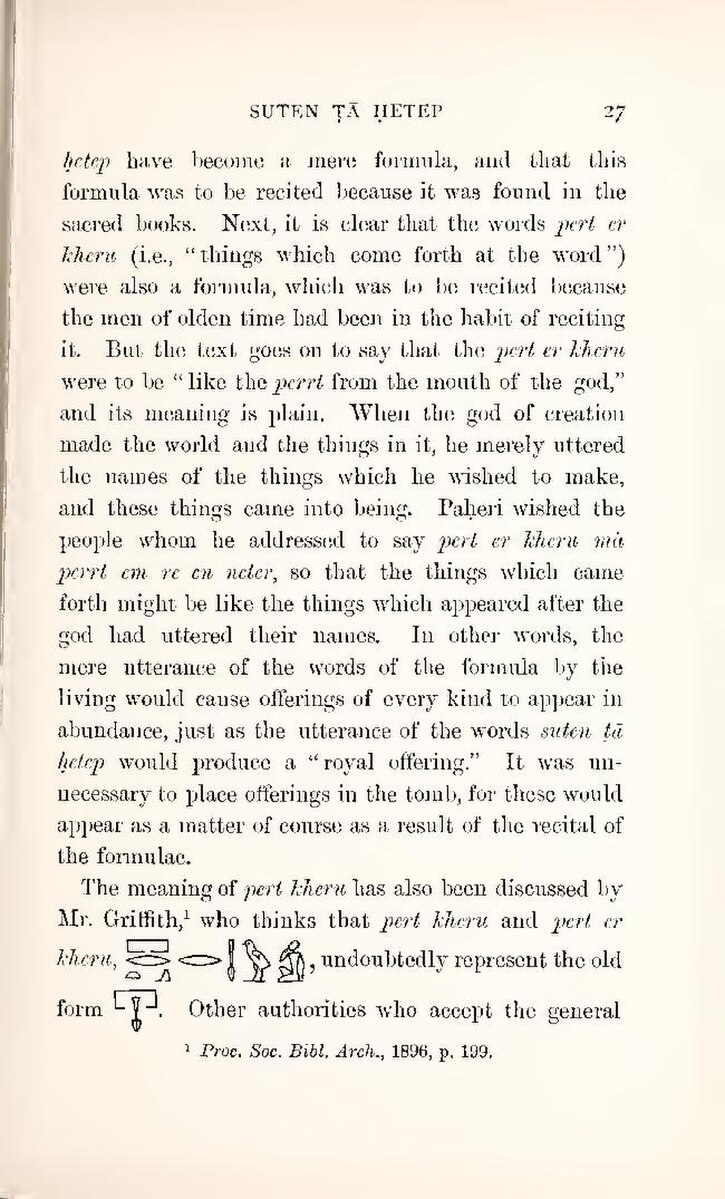ḥetep have become a mere formula, and that this formula was to be recited because it was found in the sacred books. Next, it is clear that the words pert er kheru (i.e., "things which come forth at the word") were also a formula, which was to be recited because the men of olden time had been in the habit of reciting it. But the text goes on to say that the pert er kheru were to be "like the perrt from the mouth of the god," and its meaning is plain. When the god of creation made the world and the things in it, he merely uttered the names of the things which he wished to make, and these things came into being. Paḥeri wished the people whom he addressed to say pert er kheru mȧ perrt em re en neter, so that the things which came forth might be like the things which appeared after the god had uttered their names. In other words, the mere utterance of the words of the formula by the living would cause offerings of every kind to appear in abundance, just as the utterance of the words suten ṭā ḥetep would produce a "royal offering." It was unnecessary to place offerings in the tomb, for these would appear as a matter of course as a result of the recital of the formulae.
The meaning of pert kheru has also been discussed by Mr. Griffith,[1] who thinks that pert kheru and pert er kheru,
| |
, undoubtedly represent the old form
| |
. Other authorities who accept the general
- ↑ Proc. Soc. Bibl. Arch., 1896, p. 199.
